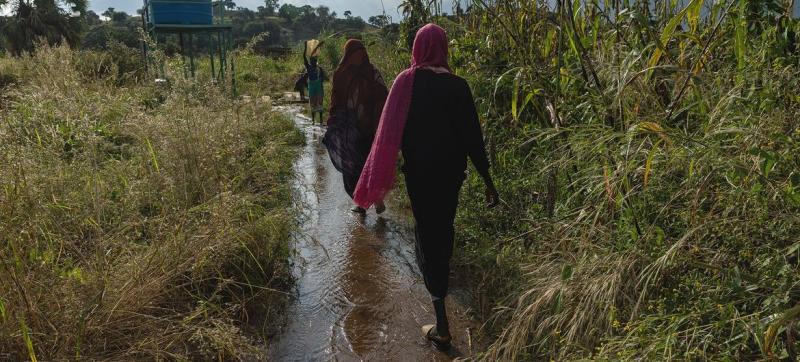- India Sees 9% Drop in Foreign Tourists as Bangladesh Visits Plunge |
- Dhaka Urges Restraint in Pakistan-Afghan War |
- Guterres Urges Action on Safe Migration Pact |
- OpenAI Raises $110B in Amazon-Led Funding |
- Puppet show enchants Children as Boi Mela comes alive on day 2 |
UN Warns of Worsening Food, Health Crises Across Sudan

As conflict between rival militaries rages on, millions of people keep on being displaced.
The UN Office for the Coordination of Humanitarian Affairs (OCHA) has expressed alarm over escalating health and food crises across Sudan, particularly as cholera cases continue to rise in Tawila, located in North Darfur state.
As conflict between rival military factions persists, millions remain displaced. While the UN and its partners continue to assist newly displaced families in North Darfur, nearly 60 per cent still lack adequate shelter, said Farhan Haq, Deputy Spokesman for the UN Secretary-General, during a daily press briefing on Monday.
At Abu Shouk camp in El Fasher, the capital of North Darfur, displaced families are experiencing acute shortages of food and medicine, with local reports citing four hunger-related deaths last week. Food insecurity continues to worsen across the country.
In North Darfur, low cereal supply, poor harvests, and a prolonged food deficit have severely reduced food availability.
Meanwhile, cholera cases in Tawila have risen steadily. Since June, over 1,500 suspected and confirmed infections have been reported, with more than 500 patients currently under treatment.
Although local authorities have enacted emergency measures—including market closures and a ban on public gatherings—humanitarian organizations urgently need $120 million to scale up life-saving support in Tawila over the next three months.
“This funding is essential to contain the outbreak and sustain critical services,” OCHA stated.
In Port Sudan, the country’s main entry point for aid workers and supplies, a sharp rise in heatstroke cases—linked to extreme temperatures and prolonged power outages—has raised additional concern. One death was recorded over the past two days.
In El Fasher, food prices have soared to alarming levels. The Integrated Food Security Phase Classification (IPC) has already identified famine conditions in several areas of North Darfur and the eastern Nuba Mountains, with more locations at risk.
In May, the average cost of a food basket in El Fasher was over six times the national average, with the city recording the highest prices for nearly all essential items among assessed locations.
An IPC alert issued earlier this month warned that Sudan’s food security and nutrition situation is likely to deteriorate further through the lean season (July to October)—particularly in conflict zones where access is limited and displacement levels are high.

